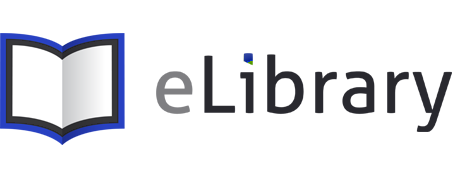Analysis of the Options of the Damaged Structures of the Shoulder Joint, Accompanying Traumatic Shoulder Dislocation
- Authors: 1, 1
-
Affiliations:
- Voronezh State Medical Academy named after N.N.Burdenko, Voronezh, Russian Federation
- Issue: Vol 6, No 3 (2013)
- Section: Experience
- URL: https://vestnik-surgery.com/journal/article/view/210
- DOI: https://doi.org/10.18499/2070-478X-2013-6-3-%25p
- ID: 210
Cite item
Full Text
Abstract
Relevance The conventional system of management of patients with traumatic brachial dislocation doesn’t contain a certain list of rules to choose a proper treatment approach depending on the injury type of bone muscular, connective tissual and nervous apparatus of the brachial joint. It leads to a great number of complications. The purpose of the study The aim of the study is to work out a diagnostic and treatment program of brachial traumatic dislocation based on the taking into consideration the variants of bone, cartilage, capsular ligamental, muscular and nervous structures of the brachial joint injuries. Materials and methods 324 patients with traumatic brachial dislocations were treated at the Voronezh Regional Clinical Hospital №1 and the analysis of their treatment has been made during the period from 1999 to 2010. Results and their discussion A classification system of combined injuries of brachium in traumatic dislocation was suggested. Consideration of injury combinations allows choosing optimal approaches of resetting, emphasizing the observation of regeneration dynamic of individual combinations in the cases of brachial structures injuries. The treatment based on the appreciation of different variants of disorders allows to work out a rehabilitation program contributing to the restoration of each impaired brachial structure to avoid ineffective conventional methods. Conclusion It is necessary to make a post-resetting diagnose more carefully. Diagnostic procedures should include the control of all the brachial injury components immediately after the dislocation resetting. Key words Brachial joint, traumatic dislocations, types of injuries, rehabilitation program
About the authors
Voronezh State Medical Academy named after N.N.Burdenko, Voronezh, Russian Federation
Author for correspondence.
Email: elena@vsma.ac.ru
MD, assistant. Department. Traumatology and Orthopedics of the Voronezh State Medical Academy. NN Burdenko;
Voronezh State Medical Academy named after N.N.Burdenko, Voronezh, Russian Federation
Email: elena@vsma.ac.ru
Researcher Department of Traumatology and Orthopedics of the Voronezh State Medical Academy. NNBurdenko;
References
- Aleinikov A.V. Lechenie zastarelykh vyvikhov plecha
- [Treatment of chronic dislocations of the shoulder]. Nizhnii
- Novgorod, 1995; 162 p. - (In Russian)
- Askerko E.A., Deikalo V.P., Ovchinnikov V.V., Ostashenko
- V.N. The economic costs and opportunities to reduce them
- under comprehensive medical rehabilitation of patients with
- rotator cuff pathology. Novosti khirurgii, 2007; 15: 2: 98-105.
- - (In Russian)
- Krasnov A.F. The instability of the shoulder joint in habitual
- dislocation of the shoulder joint. Ortopediia, travmatologiia,
- protezirovanie, 1991; 10: 58-63. - (In Russian)
- Mironov S.P., Arkhipov S.V. Atlas artroskopicheskoi khirurgii
- plechevogo sustava [Atlas of arthroscopic shoulder surgery].
- Moscow, LESARart Publ., 2002. 176 p. - (In Russian)
- Tolstykh A.L. Sposob diagnostiki effektivnosti vpravleniia
- oslozhnennykh perednikh vyvikhov plecha [A method for
- diagnosing the effectiveness of reposition complicated of
- front dislocations of the shoulder]. Patent RF, no. 2110951,
- - (In Russian)
- Tanaka M., Koizumi K., Kakiuchi M., Hayashida K.
- Evaluation of dislocation position in patients with recurrent
- anterior shoulder dislocation. J. Shoulder Elbow Surg., 2012
- Nov; 21(11): 1588-92. doi: 10.1016/j.jse.2011.11.020. Epub
- Feb 22.
Supplementary files













